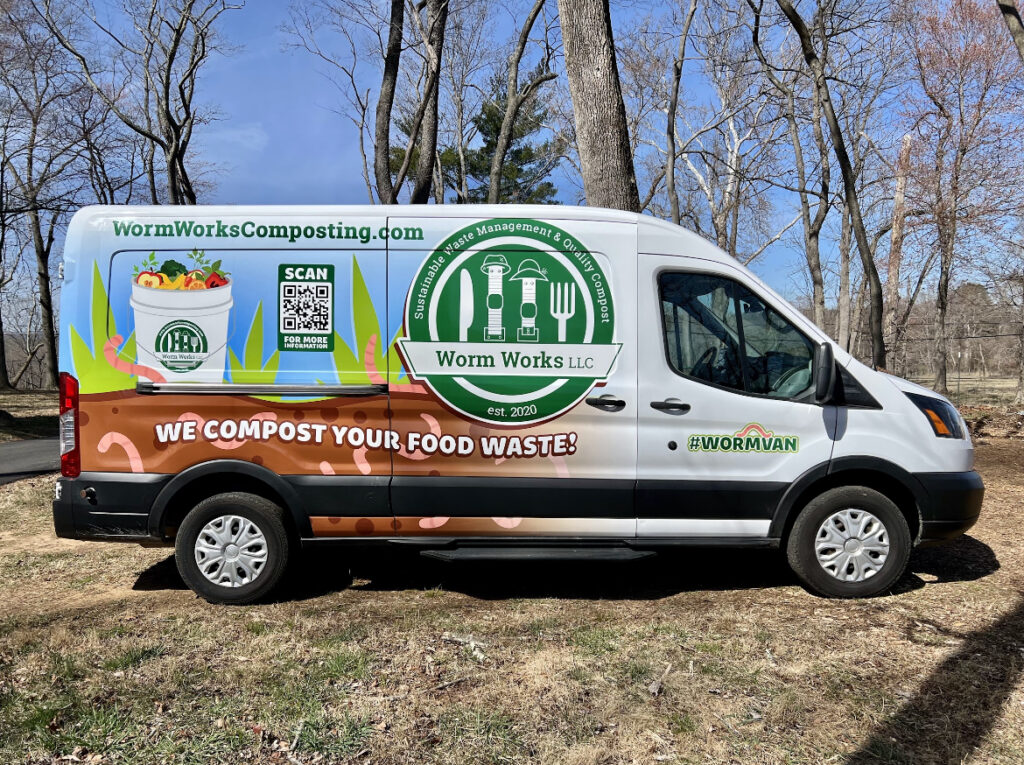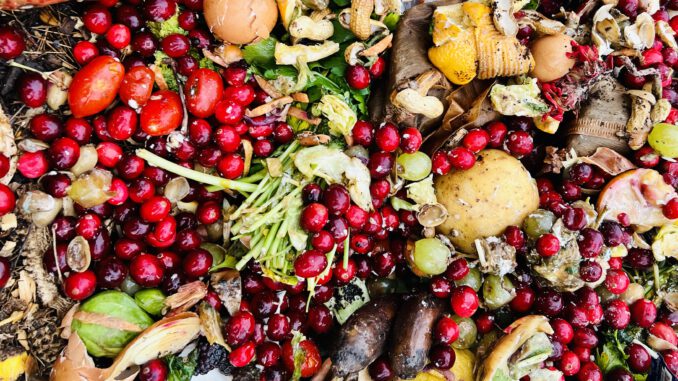
AS THE WORM TURNS
By Jill Devine
A year ago, a friend told Katie Eibner about a local service that offers customers a five-gallon bucket of “gold” in exchange for a year’s worth of kitchen scraps. That seemed like a great deal, so the Belmont Greene mother of three signed up right away.
Now Eibner is deciding what to do with her bounty, which was delivered to her door by a Loudoun-based company called Worm Works LLC.
“My husband wants to save it for his favorite trees in our backyard,” she said.
That’s because Eibner’s industrial-sized bucket was filled with something farmers and gardeners call black gold, a natural, nutrient-rich soil additive that turbocharges plant growth, thanks to a powerful component: worm castings, or – perhaps more simply – worm poop.
CURBSIDE COMPOSTING
Eibner pays Worm Works, the only service of its kind in Loudoun County, a small monthly fee to pick up her family’s food waste. The scraps are then added to those from other subscribers and delivered to a farm in Middleburg for vermicomposting, a controlled process that uses worms to break down biodegradable material.
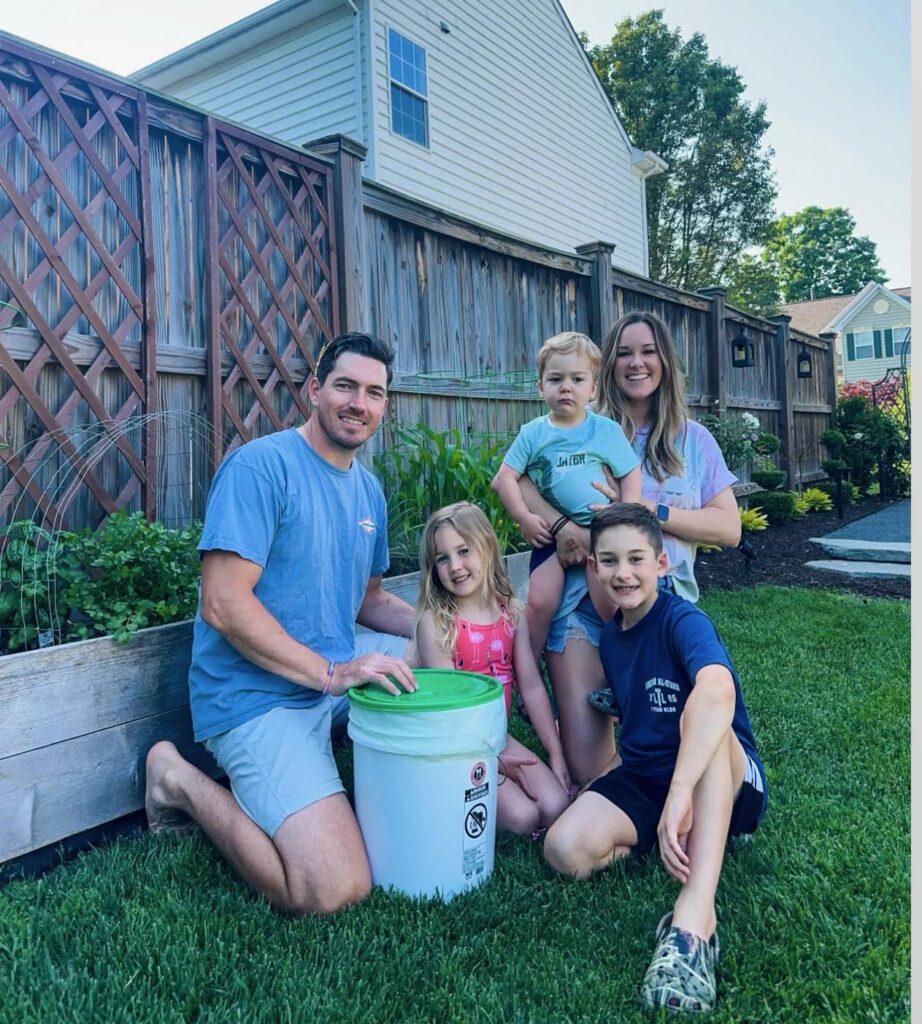
Eibner keeps a can near the kitchen sink to gather scraps like apple cores and coffee grinds, and at the end of the day she dumps it into a larger bin on the back deck. Worm Works picks up that bin and leaves a clean one every other week.
“I’ll probably bump up to weekly service soon,” Eibner said. Rates range from $15 a month for a once-a-month curbside collection to $35 a month for weekly collections.
The yearly bucket of black gold compost that Worm Works offers as a courtesy to curbside customers is a great perk, but that’s not what motivated Eibner.
“Composting brings an awareness of how much food you are buying and wasting,” she said. “The amount of waste that fills our bin is pretty shocking. Even with the monthly collection fee, I save money, because seeing all that waste motivates me to stop over-purchasing.”
Food composting also protects the environment. According to a 2021 report by the Environmental Protection Agency, more than a third of the food produced in the United States ends up in landfills. Organic material rotting in landfills creates significant amounts of methane, a potent greenhouse gas that contributes to climate change. In the United States, more food is sent to landfills than any other single material in everyday trash.
CO-OWNED BY ASHBURN RESIDENT
Eibner learned of Worm Works from her friend Michelle Wendt, who also lives in Belmont Greene. Wendt co-owns Worm Works with its 22-year-old founder, George Ardura, who lives in Sterling.
Ardura graduated from the University of Virginia this spring. He founded Worm Works while still a student and was a grant winner in the 2020 U.Va. Darden School of Business VentureLab summer incubator program. Worm Works incorporated in April 2020, and Ardura focused his fledgling business in Ashburn.
“It’s centrally located, and so many people in Ashburn were already aware of the benefits of composting,” he said.
Ardura met Wendt when she applied to be a Worm Works route driver.
“I am passionate about eco-living and composting, so I was one of Worm Works early customers,” she said. “Not everyone can or wants to bring composting into their own backyard. The piles grow quickly and can get pretty messy and stinky. Our service makes composting easy.”
When Wendt’s family moved to Ashburn 13 years ago, she left a career in aviation administration to stay home with her children. “My career took a hiatus, but in hindsight that led to this great opportunity with Worm Works,” she said.
At first, Wendt borrowed her husband’s truck for her route, which then was just 15 homes. Today, Worm Works serves more than 170 customers in Fairfax and Loudoun counties.
“I found myself thinking all the time about how to improve and grow this business,” said Wendt, who compares composting to recycling glass, plastics and paper. Some folks choose to do it and others don’t. Recycling food scraps is just another way to repurpose waste and keep it out of landfills.
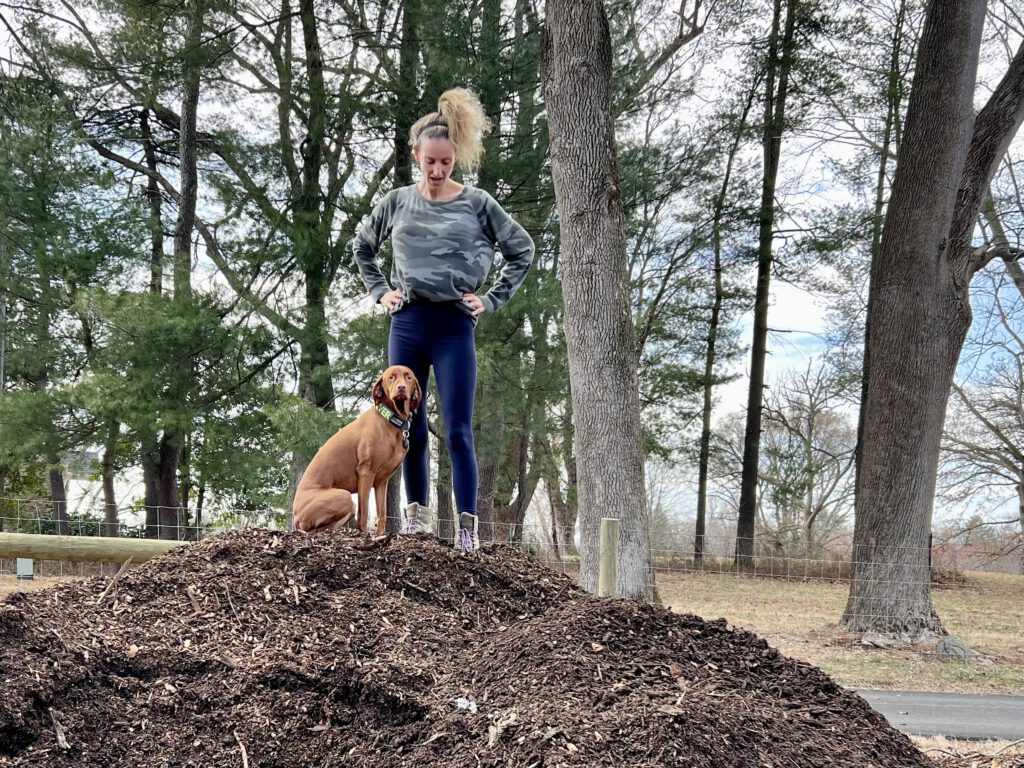
In 2022, Ardura asked Wendt to help with a presentation for the Loudoun Economic Development Authority’s Innovation Challenge. The pitch was a success, and the business won a $35,000 grant, which it used to buy a commercial van.
In December 2022, Ardura gave Wendt co-ownership of the company he founded.
“We are a social enterprise. Our main goal is to expand composting,” Ardura said. “I could have held onto everything for myself, but Michelle is there every day, growing the business and greatly benefiting our mission.”
Wendt predicts the company will continue to grow. “Once you know about composting, you can never unknow it. I will never be able to throw a banana peel in the trash for the rest of my life.”
Wendt spends her off hours teaching about composting at local school and community events.
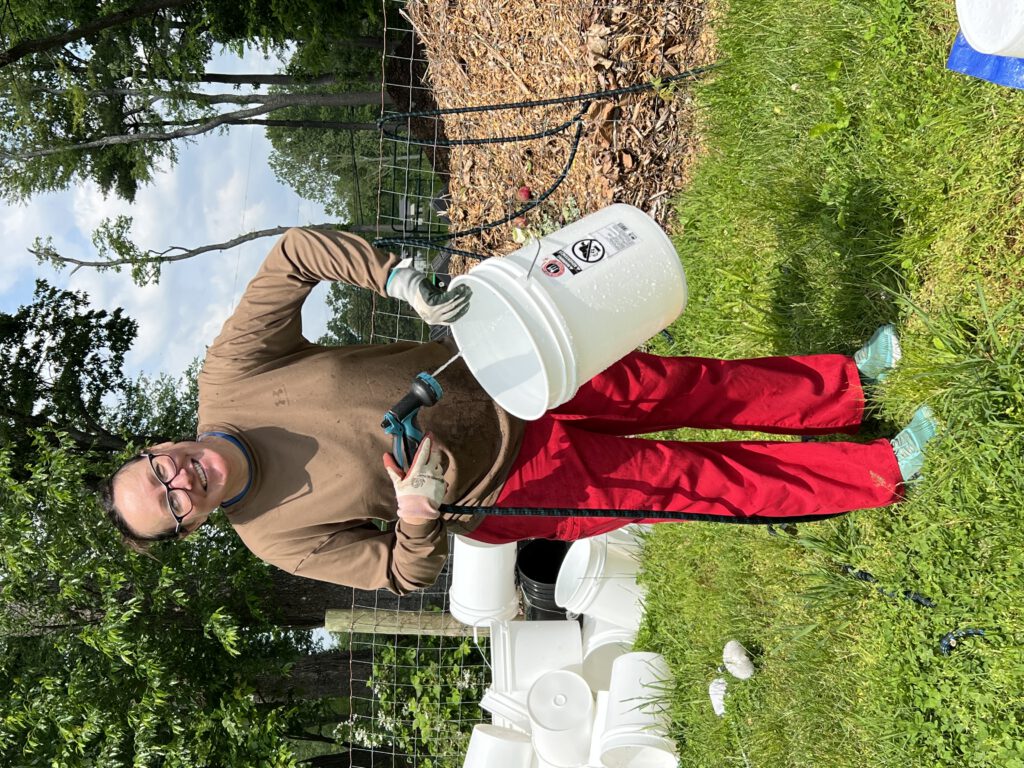
Broadlands resident Trisha McKnight is another Worm Works route driver. McKnight lives in a townhouse so she can’t compost in her yard. She says the compost Worm Works produces reminds her of the rich black soil of Illinois, where she grew up.
“I’ve been recycling since I was little – it’s something my dad taught me. He could find a way to reuse everything,” McKnight said. “Composting is so easy. There is no reason to keep adding to our landfills when we can instead turn food waste into something so beneficial.”
Eibner hopes attitudes like this spread. To paraphrase an old saying, one person composting may seem like just a drop in the bucket — or the bin in this case — but it’s those drops that make the bucket full.
“If even just one home in every 20 participated,” she said, “the results would quickly add up to something meaningful.”
Jill Devine is a freelance writer and former magazine editor from Loudoun County who writes for a variety of Virginia publications.
CAN I COMPOST THIS?
FOOD
YES: Fruits and vegetables, including raw, cooked, spoiled, moldy or frozen food and
peelings. Bakery and dry goods, including pasta, beans, rice, bread, flour, cereal, nuts and
shells. Eggs and eggshells. Pet Food.
NO: Meat and fish, including bones and scales. Fats, oils and greases. Dairy products. Stickers
on produce. Plastic produce bags.
PAPER
YES: Napkins, paper towels, tissues, paper egg cartons, paper grocery bags, cardboard toilet
paper rolls, printer paper, parchment paper, certified-compostable plates, bowls and
silverware.
NO: Magazines or wax-coated/shiny paper.
OTHER
YES: Coffee grounds, tea bags, houseplant trimmings, wooden popsicle sticks, chopsticks,
toothpicks, hair and pet fur.
NO: Aluminum foil, staples, cigarettes, human or animal waste, cat litter, dryer lint.
Source: Worm Works LLC


